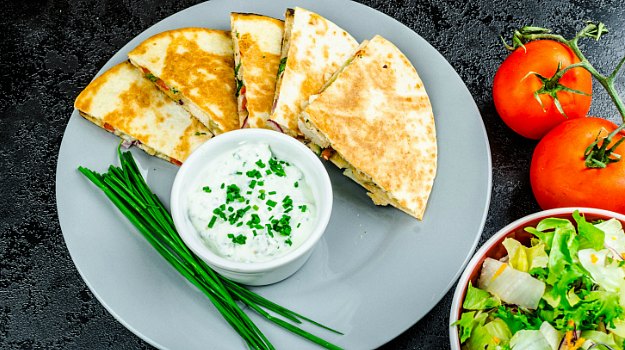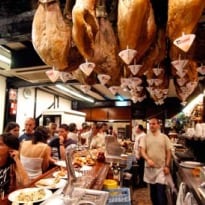Food can be one of the best things about a holiday - or one of the worst. Do you research restaurants before you go away, and if so, where do you get your recommendations?
For those who live their lives in perpetual anticipation of the next meal, eating out abroad presents a fleeting chance to explore once-in-a-lifetime peaks - and never-again-I-swear valleys - of gastro-geography.
In this respect, the world divides neatly into two types of people. The first type rock up, drop their bags and wander Pollyanna-like into the nearest eatery, where they're met with the finest examples of local cuisine and hospitality, and return home swearing that Alghero/Rio/Hanoi has the best food in the world and the friendliest people they've ever met.
Then there's the rest of us, who are resigned to the fact that, without restaurant research, we'll be left picking at our plates in a half-empty dining room, having been served the same facsimile meal that graces the menus of every establishment we've encountered, while the locals gorge on fresh seafood and small-batch artisanal tipple just round the corner, clinking glasses with the aforementioned first type of traveller.
So we knuckle down and do our holiday homework. But where to begin?
In the days when encyclopedias were hardbacked instead of crowdsourced, there was a wonderful holiday planning device known as the Tourist Guidebook. You'd consult the index, pinpoint your destination, and be presented with a list of, oh, at least three restaurants to choose from. When you turned up (assuming the place hadn't closed in the four years since the guide was published), you'd be greeted by the disappointed looks of other foreigners hoping to glimpse a more indigenous clientele, and the knowing smirk of the owner.
Add on the shoestring budget of your average travel writer (not exactly conducive to an in-depth assessment of every dish in town) and a certain suspicion regarding the dubious practices of some members of the profession, and you might conclude that you'd be better off stalking the concierge on their dinner break than paying attention to most guidebook restaurant listings.
Thankfully, the world wide web now gives us access to a previously untapped fount of knowledge: the Random Nameless Stranger. Even better, a whole bunch of random nameless strangers, brought together in a one-stop shop of holiday wisdom: TripAdvisor.
A self-perpetuating guide for the undiscerning, written by the one-time tourist for the next one-time tourist? Or a valuable source of local knowledge? If you haven't already noticed the various, er, weaknesses to the site's system, I'll leave you to look up the places you know in your own home town and draw your own conclusions. In other words, a healthy dose of cynicism is advised when using the guide.
Still, for those willing to put in the hours, the internet holds more than just an opinion free-for-all from those who think a hotdog-stuffed deep-crust pizza is the pinnacle of Neapolitan cuisine. If you're the kind of person who can still utter the word "foodie" without the need for air quotes and a painfully self-aware eye roll, you'll find a wealth of information on Chowhound, where food fanatics pen mini essays on the best bagels in New York and guides on avoiding the tourist traps in Brussels, and spill the beans on the latest, hottest eats in town and country. And for the big cities of the English-speaking world, have a glance at Urbanspoon, which arguably has its finger on the hip and happenin' pulse. (Again, have a go at the home town test and see if you agree.)
So where do you go for your restaurant recommendations abroad? What's your best ever "just stumbled upon it" meal? And what lengths will you go to in search of that perfect holiday meal?
A bar in San Sebastian, Spain. Photograph: Alex Segre/Alamy






